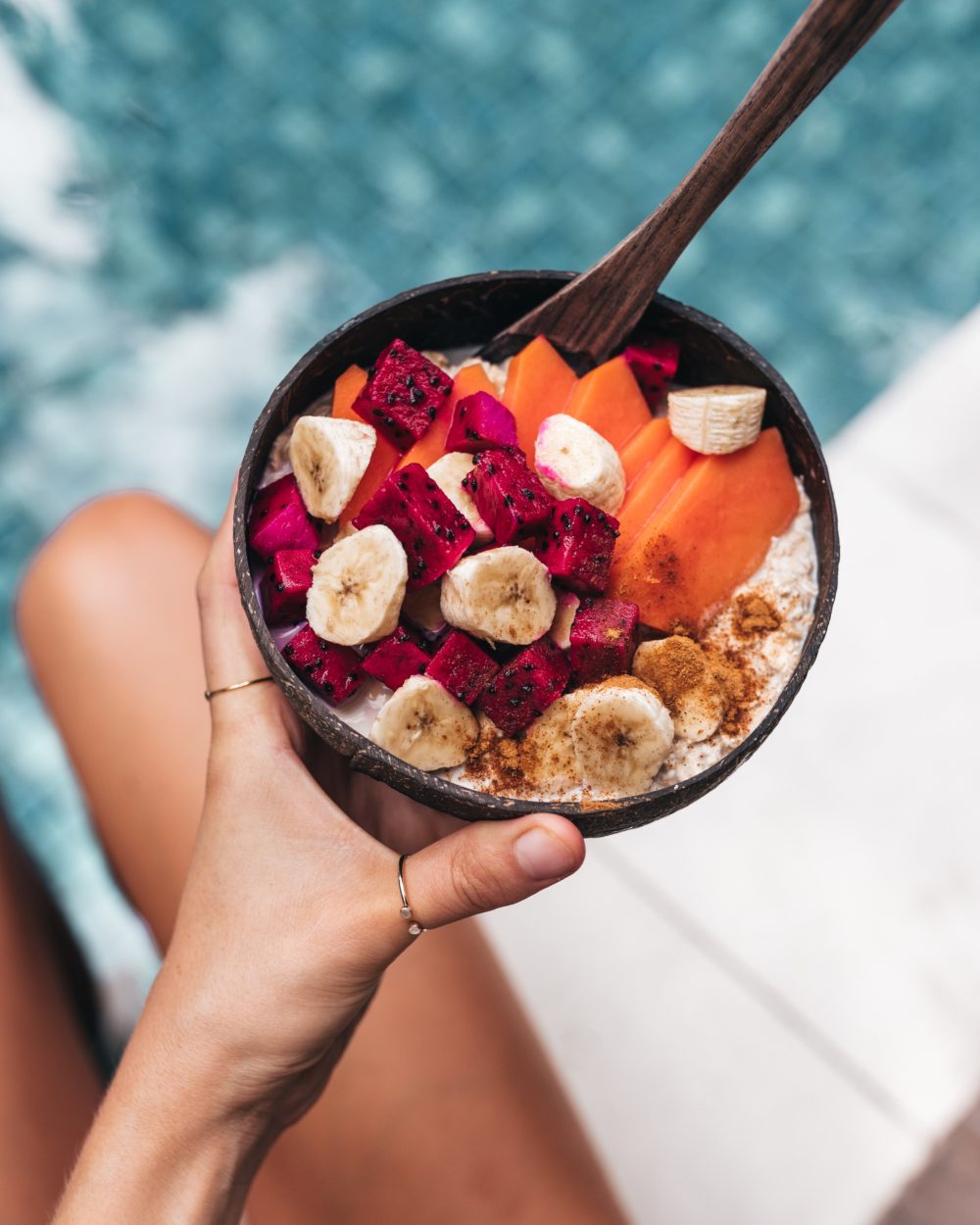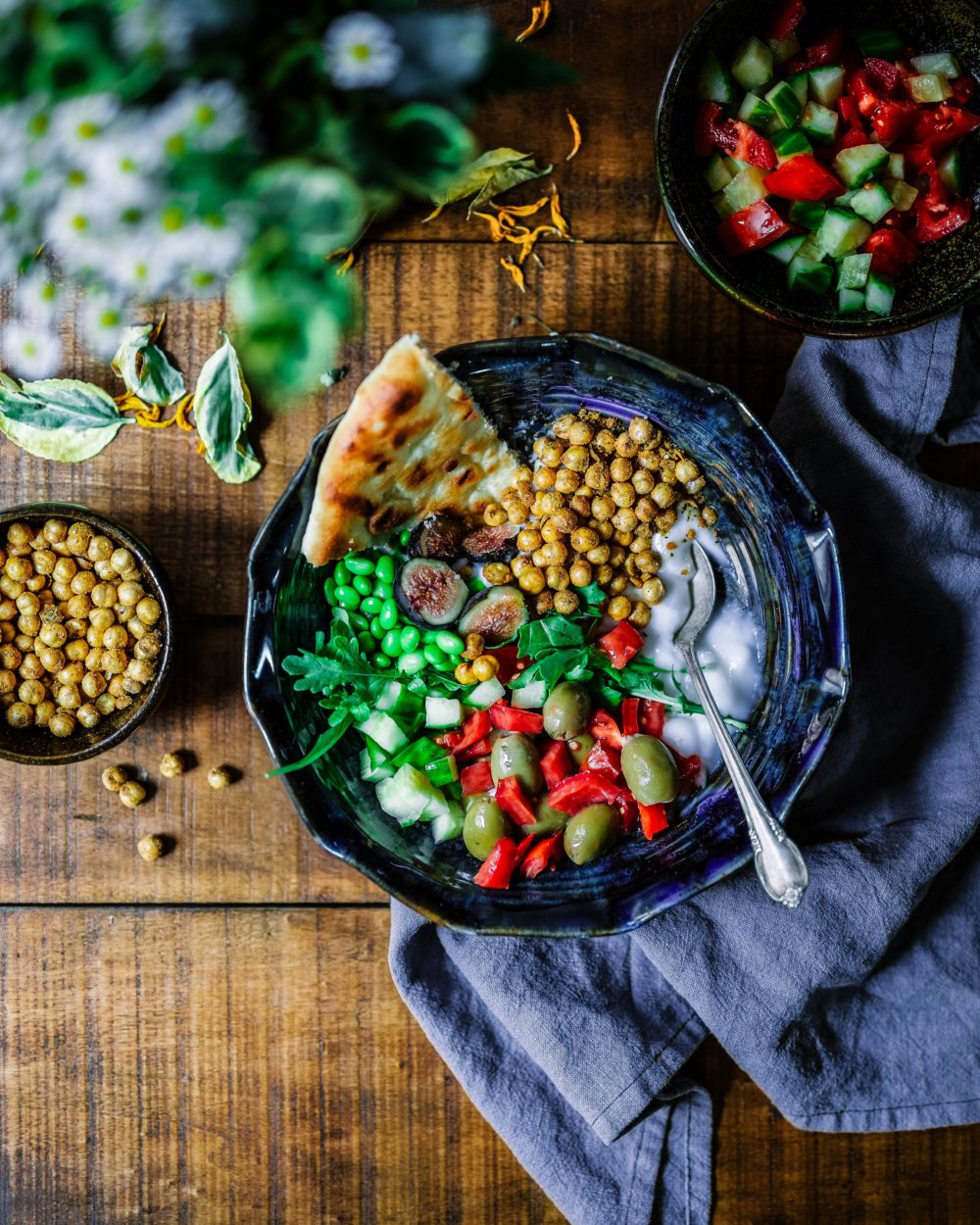While I’m forever fascinated with the latest news on individual nutrients, supplements, and treatments, I’m even more impressed with the ongoing research on the benefits of a plant-based diet. The last decade has witnessed veganism promoted in myriad ways—from weight loss wonder to chronic disease miracle–so there’s been no shortage of reasons to go plant-based.
When it comes to making healthy decisions for yourself, however, it’s usually helpful (and interesting!) to take a look at the roots of these compelling claims and gain a better understanding of the specifics. In other words, just what is all of that salad and dairy-free dahl are up to in our bodies? Two 2019 studies on eating vegans dive into that. Specifically, they detail how a single vegan meal affects gut hormonal health and how a vegan diet impacts the supply of antioxidants in your body—two components that bare numerous implications for the prevention of diabetes, cancer, and other diseases. Let’s take a look!

Vegan Diets Are Better for Gut Hormones & Satiety
A January 2019 study published in Nutrients determined that a vegan diet fosters the gut bacteria responsible for regulating blood sugar, prompting a sense of satiety (fullness and satisfaction with a meal), and maintaining healthy body weight.
The researchers assembled three groups of men—20 men with obesity, 20 with type 2 diabetes, and 20 who were considered healthy. The men ate a vegan veggie burger and a classic beef cheeseburger. Both burgers contained the same amount of calories and the same ratio of macronutrients (protein, carbs, and fats).
For all three groups, the vegan burger increased the healthy gut bacteria. “These beneficial gut hormones can help keep weight down, enhance insulin secretion, regulate blood sugar, and keep us feeling full longer,” says study author Hana Kahleova, M.D., Ph.D., director of clinical research at the Physicians Committee for Responsible Medicine. “The fact that simple meal choices can increase the secretion of these healthy hormones has important implications for those with type 2 diabetes or weight problems.”
This is promising news for those interested in preventing type 2 diabetes and obesity—as well as for those who are currently experiencing those conditions.
How A Vegan Diet Impacts Your Levels of Antioxidants
A February 2019 study published in The Journal of Nutrition looked at a completely different side of a plant-based diet: biomarkers, including antioxidants.
The study examined 840 people from five different dietary groups: vegans (no animal products consumed), lacto-ovo vegetarians (eggs and dairy are eaten but fish and meat are not consumed), pesco-vegetarians (fish is consumed but meat is not), semi-vegetarians (meat is consumed less than once a week but more than once a month), and non-vegetarians.
The participants gave blood, urine, and fat samples that were studied for levels of antioxidants, saturated fat, unsaturated fat, and vitamins.
Vegans and vegetarians were found to have more disease-fighting antioxidants including carotenoids, isoflavones, and enterolactone as well as omega-3 fatty acids—an interesting find given that vegans do not consume fish, one of the most popular (though problematic) sources for omega-3 fatty acids.

“We report significant and overall favorable differences in several biomarkers associated with nutrient intake, including carotenoids, isoflavones, enterolactone, and various fatty acids in vegetarians, particularly vegans compared to non-vegetarians,” the researchers concluded. Antioxidants and omega-3 fatty acids play a critical role in taming inflammation and fighting diseases, including cancer.
The abundance of fruits and vegetables in a healthy vegan diet is to thank for the wealth of antioxidants in those to eat plant-based while walnuts, flax seeds, and chia seeds are tasty and versatile sources of fatty acids.
The Takeaway
With the promise of a healthier gut, increased satiety, and more antioxidants coupled with the increasing number of delicious vegan foods and recipes at our fingertips, it’s never been a better–or tastier–time to go veg and enjoy inviting wonderful plants onto your plate.
Do you follow a plant-based diet? What prompted you to make that change?
Related: I Tried A Low-Fat, High-Carb Vegan Diet—5 Surprising Ways It Changed My Life
Sorry Haters, New Study Proves Vegan Diet Reduces Carbon Footprint By 73%
‘Sexiest Vegan’ Maggie Q’s Genius Advice For Thriving On A Vegan Diet
Get more like this—Subscribe to our daily inspirational newsletter for exclusive content!
__
Photo: Alexandra Andersson on Unsplash, Edgar Castrejon on Unsplash,




